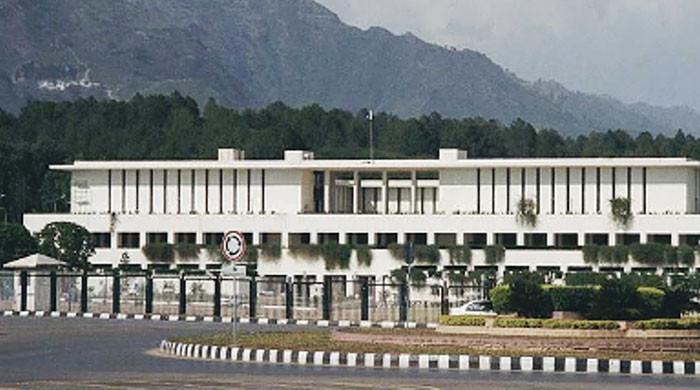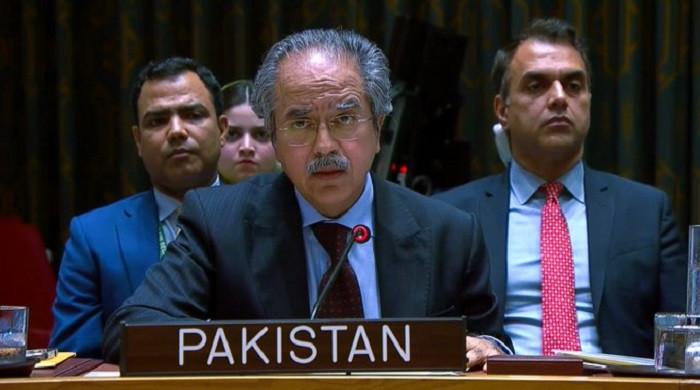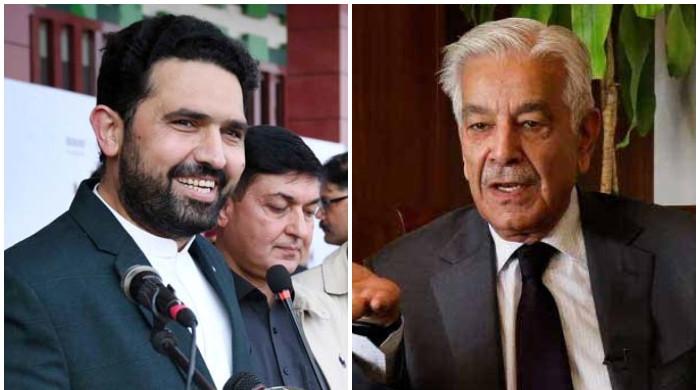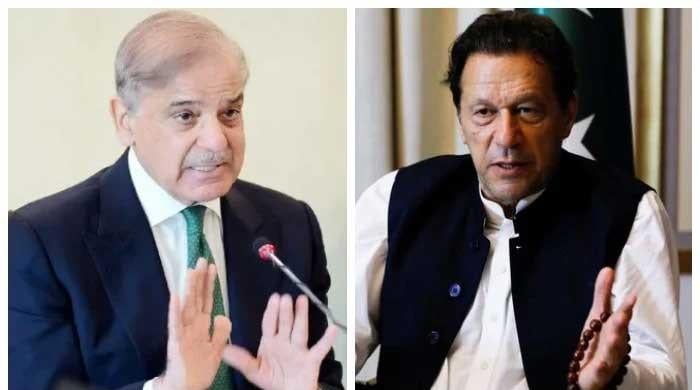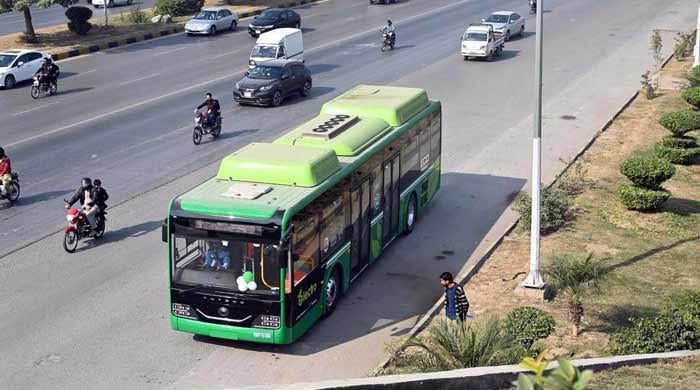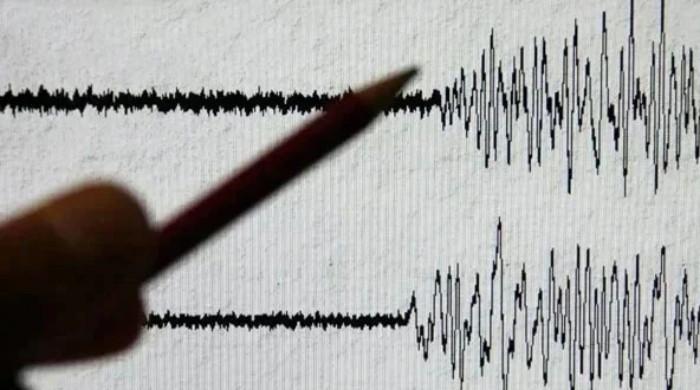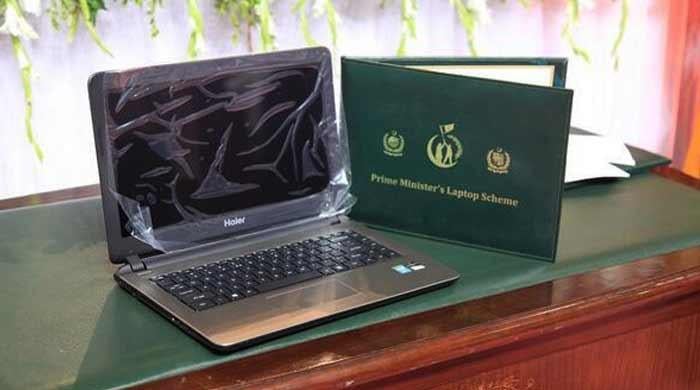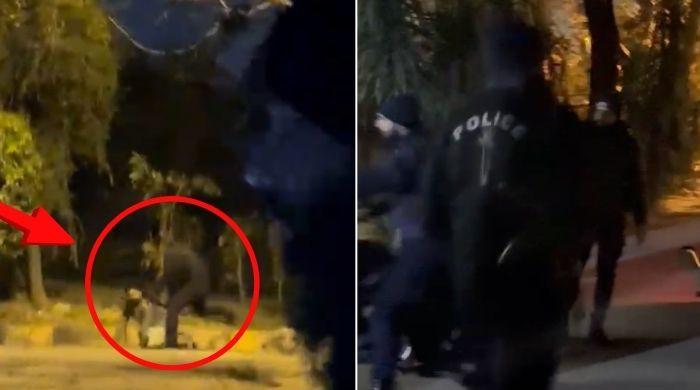'PTI could face ban if leaders convicted in May 9, cipher cases'
Disbanding of the PTI would become probable after verdict is handed to PTI founder, say sources
January 28, 2024
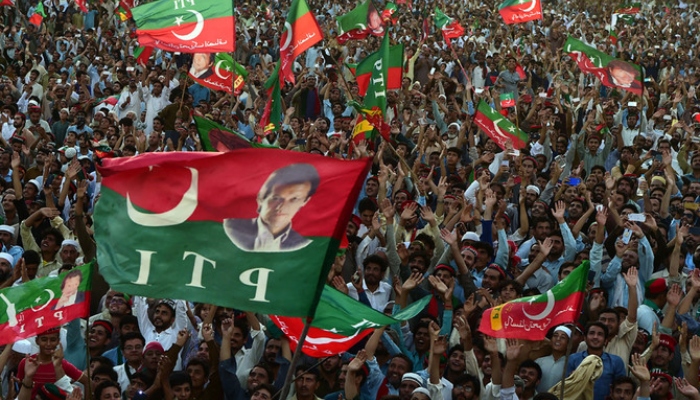
- Tarrar says caretaker government could also move SC.
- He says PTI has defied several laws under the Elections Act.
- Sources say disbanding PTI to become probable after court cases.
ISLAMABAD: Pakistan Tehreek-e-Insaf (PTI) opponents have said the PTI could be banned if the party founder Imran Khan and other top brass are convicted in the cases relating to the May 9 violent incidents and violation of the Secrets Act in the cipher case, The News reported.
After several years of probe into the PTI’s funding led the Election Commission of Pakistan (ECP) to unanimously declare that the PTI had received “prohibited funding” in August 2003. This had created an opportunity for the Pakistan Democratic Movement (PDM) government to dissolve the party. Imran was though disqualified from the parliament.
Highly placed sources that had been part of the previous Shehbaz Sharif government told The News on Saturday that the ECP verdict had provided an occasion for the PDM government of the time to raise the question before the Supreme Court of Pakistan to declare the PTI a banned entity but the government opted to agitate the matter later at an appropriate time.
Senator Azam Nazir Tarrar, the law and justice minister of the previous government and leader of the house in the Senate, said the government was struggling to save the country from default and opted to delay the matter. In a brief chat with The News, he said the PTI had defied several laws under the Elections Act, 2017, and committed offences which, once the government decided to agitate regarding the PTI’s lawful existence, could be decided by the apex court conveniently.
Tarrar referred to Chapter XI of the Elections Act which includes Article 212: “Dissolution of a political party — (1) Where the Federal Government is satisfied on the basis of a reference from the Commission or information received from any other source that a political party is a foreign-aided political party or has been formed or is operating in a manner prejudicial to the sovereignty or integrity of Pakistan or is indulging in terrorism, the Government shall, by a notification in the official Gazette, make such declaration. (2) Within fifteen days of making a declaration under sub-section (1), the Government shall refer the matter to the Supreme Court. (3) Where the Supreme Court upholds the declaration made against the political party under sub-section (1), such political party shall stand dissolved forthwith. Explanation. — In this section, foreign-aided political party ‘means a political party which — (a) has been formed or organised at the instance of any foreign government or political party of a foreign country; (b) is affiliated to or associated with any foreign government or political party of a foreign country; or (c) receives any aid, financial or otherwise, from any foreign government or political party of a foreign country, or any portion of its funds from foreign nationals.”
To a query, Tarrar said the caretaker government could also knock on the doors of the highest court for the purpose but the next government would have to consider it with seriousness.
To another question on the effects of the dissolution of the party, Tarrar referred to Article 213 of the Elections Act, 2017 that states: “(1) Where a political party is dissolved under Section 212, any member of such political party, if he is a member of the Majlis-e-Shoora (Parliament), a Provincial Assembly or a local government, shall be disqualified for the remaining term to be a member of the Majlis-e-Shoora (Parliament), Provincial Assembly or local government. (2) The Commission shall, by notification in the official Gazette, publish the names of the members of a political party becoming disqualified from being members of Majlis-e-Shoora (Parliament), Provincial Assembly or local government on the dissolution of the political party under Section 212.”
Sources also say that Article 200 of the Act that deals with formation of political parties maintains that “a political party shall not — (a) propagate any opinion, or act in a manner prejudicial to the fundamental principles enshrined in the Constitution; 106 (b) undermine the sovereignty or integrity of Pakistan, public order or public morality or indulge in terrorism; (c) promote sectarian, regional or provincial hatred or, animosity; (d) bear a name as a militant group or section or assign appointment titles to its leaders or office-bearers which connote leadership of armed groups; (e) impart any military or paramilitary training to its members or other persons; or (f) be formed, organized, set-up or convened as a foreign-aided political party.”
Sources also told The News that disbanding of the PTI would become probable after a verdict is handed to the PTI founder and other leadership currently involved in under-trial cases.
None of the PTI leaders including the leader of the opposition in the Senate Dr Shahzad Waseem was available for comments, despite repeated efforts to reach them.




